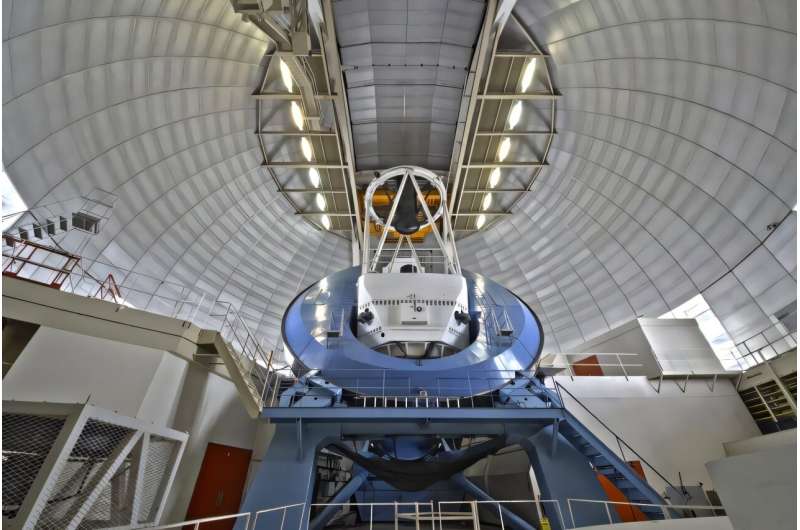A new study from the Royal Astronomical Society casts doubt on the long-held theory that a mysterious force known as “dark energy” is driving away distant galaxies at an ever-increasing rate.
Instead, they show no evidence that the universe is accelerating and instead suggest that it may be starting to slow down.
If confirmed, this result could open a whole new chapter in scientists’ quest to uncover the nature of dark energy, resolve the “Hubble strain,” and gain a deeper understanding of the universe’s past and future.
Lead researcher Professor Yongwook Lee of Yonsei University in South Korea explains: “Our research shows that the universe is already in a phase of slowing expansion at this point, and that dark energy is evolving over time much faster than previously thought.”
“If confirmed, these results would represent the biggest paradigm shift in cosmology since the discovery of dark energy 27 years ago.”
Astronomers thought the universe was expanding over time
For the past 30 years, astronomers have generally believed that the universe continues to accelerate due to an invisible phenomenon called dark energy, which acts as a kind of anti-gravity.
However, a team of Yonsei University astronomers has presented new evidence that type Ia supernovae, long considered the “standard candle” of the universe, are actually strongly influenced by the age of their progenitor stars.
Even after luminosity normalization, supernovae from young stellar populations appear systematically dimmer and supernovae from older populations appear brighter.
Dark energy weakens and evolves over time
Based on a much larger host galaxy sample of 300 galaxies, the new study confirms this effect with very high significance (99.999% confidence), suggesting that the dimming of distant supernovae results not only from cosmological effects, but also from stellar astrophysical effects.
Once this systematic bias was corrected, the supernova data were no longer consistent with the standard ΛCDM cosmology model with a cosmological constant.
Instead, it is in much better agreement with a new model supported by the Dark Energy Spectroscopy Instrument (DESI) project.
Both the revised supernova data and the BAO+CMB-only results show that dark energy weakens and evolves significantly over time.
More importantly, when the corrected supernova data were combined with the BAO and CMB results, the standard ΛCDM model was ruled out with overwhelming significance.
Paving the way to more precise cosmological tests
To further confirm their results, the researchers are now running an “evolution-free test” using only supernovae from young, contemporaneous host galaxies across the entire redshift range.
“With the Vera C. Rubin Observatory’s discovery of more than 20,000 new supernova host galaxies within the next five years, accurate age determinations will enable a more robust and definitive test of supernova cosmology,” said research professor Cheol Chung, co-lead of the study with doctoral candidate Jun-Hyuk Song.
Last year, data from DESI in Tucson, Arizona, suggested that the force exerted by dark energy changed over time, and subsequent observations confirmed this finding.
It is hoped that with these new tools, astronomers will be better equipped to find clues about what dark energy is and how it affects the universe.
Source link

